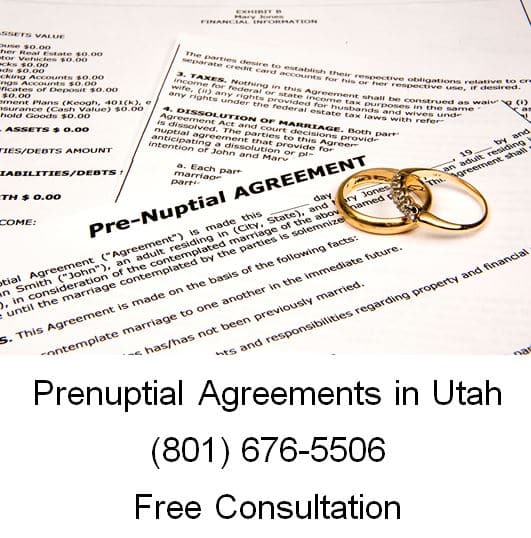Although defamation and commercial disparagement are very similar, it’s important to remember that they are separate torts. First, let’s define defamation. Defamation occurs when a person makes an untrue statement, which is published, and causes injury to the person referenced by the statement. Examples of defamatory statements include:
- Statements that reflect negatively on a person’s integrity, morality, or character
- Statements that suggest that a person was involved in a serious crime
- Statements that suggest that a person has a mental or physical defect that would discourage others from associating with him or her
Commercial disparagement is a type of tort that is exclusive to businesses, while a defamation claim can be filed by anyone. In addition, a commercial disparagement claim is seen more as protecting the property rights of a business as opposed to its reputation. This distinction is the reason why a claim of business disparagement is meant to protect a business’s financial interests, while a defamation claim is meant to more generally protect reputation.
Elements of Commercial Disparagement
In order to prevail on a claim for business disparagement, a plaintiff must prove the following elements:
- The false statement is published;
- With the intent, or reasonable belief, that the statement will cause financial loss for the business;
- There is in fact a financial loss for the business; and
- The defendant makes the statement knowing that it’s false or with reckless disregard of whether the statement is true or false.
It’s important to break down some of the elements a little further to better understand this type of tort. In this context, “published” simply means that it is communicated — in writing or orally — to a third party. In addition, the statement must be false. If the statement is damaging but true, the defendant has an absolute defense to a business disparagement lawsuit.
But proving financial harm from an act of commercial disparagement is often very difficult, since the damage to one’s reputation is abstract in nature. In other words, the plaintiff has to prove that the alleged act of disparagement actually caused customers to abandon the company or discouraged the acquisition of new customers.
Drafting Contracts
Small business owners and senior-level managers will need to draft various contracts throughout their tenure, although some contracts require the expertise of a qualified business lawyer. The “Drafting Contracts” section provides a general understanding of how to write legally defensible contracts, with articles on commonly misused contractual terms and a primer on how to write a business contract, plus an overview of common business contracts, sample sales contracts, and related resources.
Writing a Business Contract
All valid contracts have to follow some basic rules. At its most basic a contract is formed when one party makes an offer of an exchange of value to another party, who accepts the offer. There are many guides to contract writing, but there are some key elements that all contracts require, including:
- Intent to make a contract;
- A lawful subject matter;
- An offer made by one party;
- Acceptance of the offer by the other party;
- An exchange of something of value;
- A written agreement, in some circumstances.
Revocation, rejection, and counteroffer impact whether an agreement has been created. An offer that has been made but not accepted can be revoked at any time before acceptance, but once the offer is accepted an agreement is made. If you agreed to keep the offer open for a certain amount of time you can’t revoke the offer until the period is ended. Rejection happens when an offer is extended but the other party declines to accept the deal. Counteroffer refers to when a party rejects a proposed agreement and offers their own agreement with modified terms.
Accepting a contract is simple by comparison. A party can accept a contract through a clear statement or writing, by performing their part of the agreement, by promising to perform their part of the agreement, or even if the party begins to perform their part of the bargain incorrectly due to their misunderstanding.
How to Write a Business Contract
A business contract provides some clarity for parties attempting to record an agreement. When you are one of the agreeing party it is wise to ensure that you’re understanding of the agreement is clearly laid out and that you understand all of the terms. Writing your agreement and its terms are an important start, but there are some other basic considerations worth keeping in mind. The contract should be written in language that you clearly understand. Fancy legal terms aren’t helpful and when they make the document more confusing they may even hurt.
The written contract should be detailed and establish what each party will do and when their actions should take place. The terms should be as clear as possible. Details about when and how one party will pay the other are particularly important. The contract should also provide for confidentiality where that is important and the contract should also clearly indicate when and how it will terminate.
A carefully crafted contract will take state laws into consideration, may indicate rights to particular remedies and attorney fees when there is a lawsuit as a result of the contract, and may include mediation and arbitration clauses to reduce the expense and difficulty of litigation if a disagreement arises.
Business Lawyer Free Consultation
If you are here, you probably have a business law issue you need help with. If you need help with litigation for business defamation or drafting a business contract call Ascent Law for your free consultation (801) 676-5506. We want to help you.
8833 S. Redwood Road, Suite C
West Jordan, Utah
84088 United States
Telephone: (801) 676-5506
Recent Posts
Why You Need a Prenuptial Agreement
Discrimination and Harassment Claims
Divorce Filings High in January
from Michael Anderson https://www.ascentlawfirm.com/defamation-vs-commercial-disparagement/
from
https://grum193.wordpress.com/2018/12/04/defamation-vs-commercial-disparagement/








